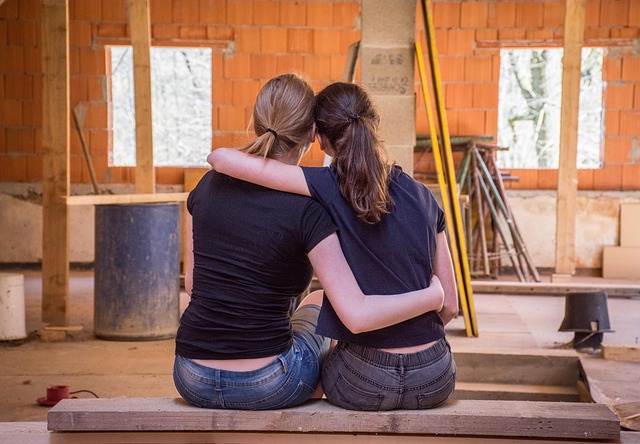Do’s and Don’ts for friends of the grieving
 When people you care about lose a loved one, go through a divorce, receive a frightening diagnosis, or mourn over a child gone astray–what, exactly, should you do?
When people you care about lose a loved one, go through a divorce, receive a frightening diagnosis, or mourn over a child gone astray–what, exactly, should you do?
I mean, really? And I’m not talking about casseroles here.
I think we’ve all got an idea of what being the perfect friend is all about–listening, encouraging, helping. But when someone’s tragedy actually hits, you might find yourself tongue-tied and immobile. You don’t want to say the wrong thing, but you don’t want to be that pesky person sitting in their living room making them feel like they need to host you, either. You want to help, but you’re not sure how.
I have a couple of suggestions–some do’s and don’ts.
6 Things NOT to do:
- Don’t trivialize the grief experience. No “You’ll find another boyfriend” or “At least he didn’t kill himself” kind of comments. Just no. Grief traumatizes and makes it impossible to see alternatives unless the grief begins to subside.
- Don’t compare your experiences to theirs. Never say, “I know exactly how you feel” or “That’s nothing! When my dad died . . .” All griefs are similar in neurology but unique in experience. You may empathize with them, but let them draw the similarities between your experiences.
- Don’t promise relief. Try not to say “It’s will get better soon.” You don’t know what their journey entails or how long it will take.
- Don’t expect them to know how to ask for help. Just jump in quietly with both feet. Set up the meal train, mow their grass, take them to lunch, buy their groceries. Just act–don’t tell them to let you know when they need something. They are just trying to survive. They don’t know how to ask.
- Don’t judge their journey, Avoid setting timelines for their recovery or restrictions on their process. Encourage them to see a counselor, yes. Make sure they’re not a danger to anyone, yes. But don’t tell them to snap out of it or get on with their life. They can’t see how that’s possible, and they probably doubt it is.
- Don’t ask them how they’re doing in a public setting. They might seem able to handle the question, but they also might, for a few moments, be trying to forget their grief. Don’t take that moment away from them. Don’t make them melt down in front of people they don’t trust.
And now for 5 things you CAN DO:
- Be present. Even if that means sitting next to them not speaking, or sitting in their living room while they nap. Grief is loss. It’s comforting to know you’re not alone, even when you want to be alone.
- Be prayerful. We can’t control our lives; we just think we can until something tragic happens. Pray for their courage, faith, and healing.
- Be normal. Take them with you to safe environments so they can do normal things.
- Be protective. Especially at the beginning, block calls and conversations they aren’t ready to have. Keep them from watching movies and shows that address their issue, too. (You don’t realize how many films address death or betrayal until you’re dealing with it!) Be a buffer for them; in social situations, keep those uninhibited people away from them (you know who they are!).
- Be helpful. Pick up the slack and do the details they can’t think about: housework, meals, bills, scheduling, doctor visits. You might have to just say, “I’m going to handle __________. You can let me know when you want it back.” I don’t think they’ll protest.
You won’t be perfect, but they don’t want that. In fact, they have no expectations on you whatsoever. Grief can only look inward and feel inward. As the friend of the grieving, you just don’t want to add unnecessary hurt to them through unknowing actions.


The Conversation
Truth!
thanks! Do you have anything to add?